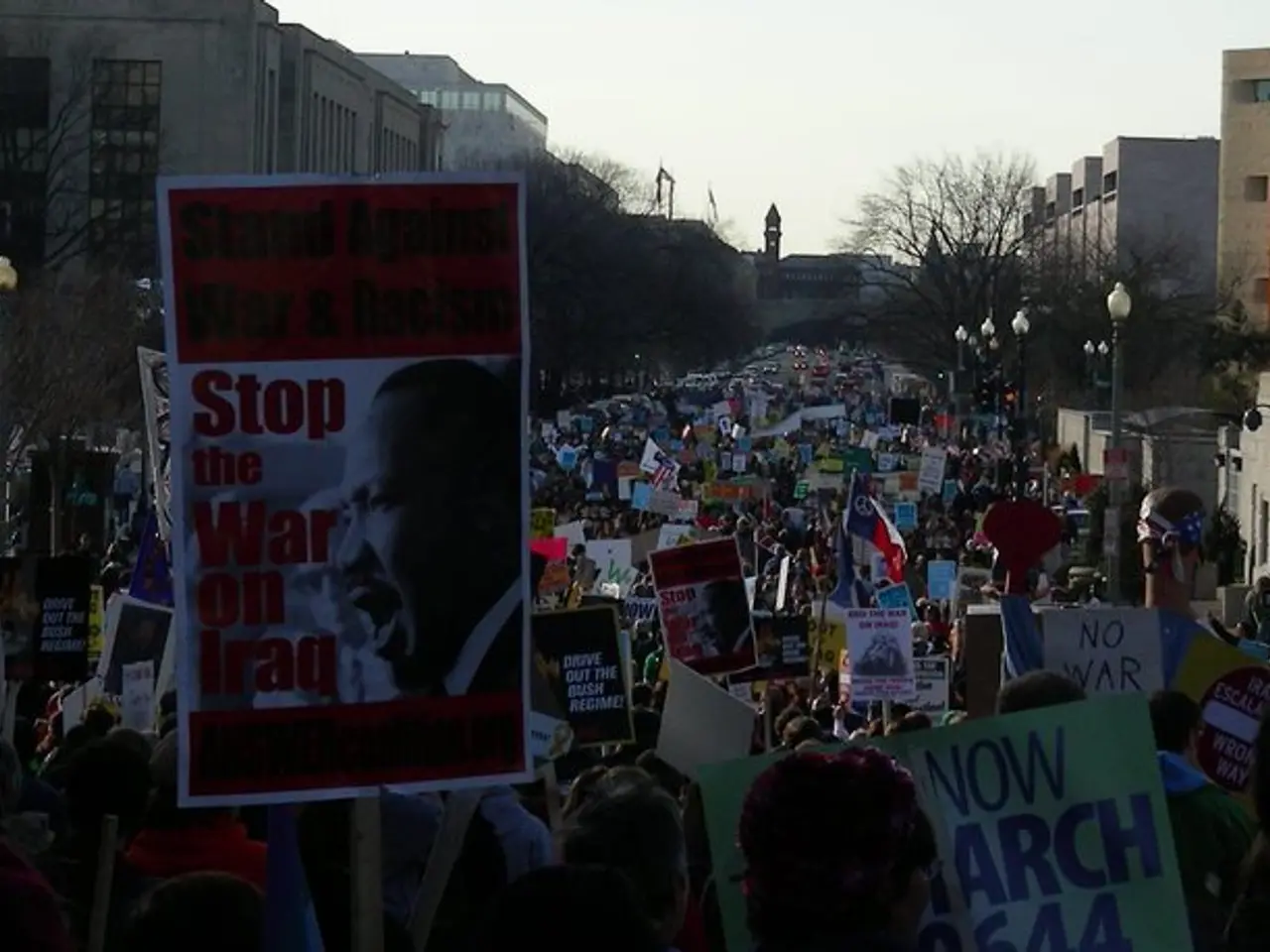Politics Weekly Review: Tariff Disputes; Girlfriend of Epstein; U.S.-Israel Diplomatic Tensions
In the political arena, President Trump's policies continue to shape the landscape, with two key issues—tariffs and the Gaza crisis—raising significant consequences.
Tariff Policies and Their Economic Impact
President Trump's tariff policies have caused economic uncertainty, potentially leading to voter discontent. Steep tariffs, such as the 25% on imported goods like steel, aluminium, autos, and goods from China, Mexico, and Canada, have raised consumer prices and squeezed household incomes. This economic strain may erode public support, especially among middle and working-class voters.
The unpredictable approach to trade has also led to investor and market volatility, dampening investor confidence and causing stock market instability. Economic forecasts suggest Trump's tariff policies may reduce U.S. GDP growth by around 0.2 percentage points and contribute to higher inflation. Slower growth and rising prices typically risk voter dissatisfaction, complicating Trump's political standing.
Moreover, Trump's tariff policies have strained international relations, with U.S. allies and trading partners expressing frustration at the lack of coherent policy signals. For instance, Canada viewed tariffs on its exports as economic aggression, while Japan's officials expressed concern over the unpredictable U.S. policy stance. Such strained relations could reduce international cooperation and complicate other foreign policy goals.
Internal political criticism and opposition have also emerged, with economists, business groups, and politicians voicing concerns about the harm to U.S. businesses and consumers. This opposition can undermine Trump's political base or embolden rivals.
The Gaza Crisis and U.S.-Israel Relations
The relationship between President Trump and Israel's Prime Minister Netanyahu, traditionally strong, is currently experiencing a distance on the Gaza crisis. The humanitarian crisis in Gaza is a point of contention between the two leaders, with differences of opinion indicating potential pressure or leverage. The outcome of U.S.-Israel relations remains uncertain due to this disagreement.
The Ghislaine Maxwell Pardon Controversy
In a separate development, Ghislaine Maxwell, a convicted co-conspirator of disgraced financier Jeffrey Epstein, was transferred to a minimum-security prison camp in Texas. Reports suggest that President Trump may be considering a pardon for Maxwell, but the White House wishes the story would go away. However, the MAGA supporters keep the issue alive, potentially adding to the political pressure on the President.
The Unpredictability of the Administration's Positions
Don Gonyea, NPR national political correspondent, has referred to the unpredictability of the administration's positions, citing the shifting tariff deadlines as an example. This unpredictability can create challenges for policymaking and international relations, as allies and adversaries may struggle to anticipate and respond to the administration's decisions.
In conclusion, Trump’s tariff policies risk substantial political costs through economic hardship for Americans, market instability, damaged trade partnerships, and Republican or public backlash, all of which could weaken his political capital and future electoral prospects. The Gaza crisis, too, poses challenges for U.S.-Israel relations, with the potential for leverage and pressure to resolve differences. The political landscape remains dynamic, with these issues shaping the contours of Trump's presidency.
Policies regarding war-and-conflicts, such as the Gaza crisis, are creating tension within the traditionally strong U.S.-Israel relationship, potentially affecting future foreign policy agreements.
The economic impact of President Trump's policy-and-legislation on tariffs, including increased consumer prices and market volatility, is raising concerns in politics and general news, potentially eroding public support and complicating his political standing.








